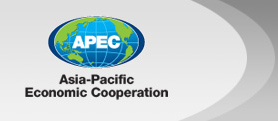APEC economy: Canada; Jurisdiction: Manitoba
Temporary practice ('fly-in, fly-out' practice)
There is no express rule allowing temporary practice by foreign lawyers.
Limited licensing of foreign lawyers (foreign legal consultant rules)
A foreign lawyer can obtain a limited licence entitling them to offer advisory services in foreign and international law (ie become a foreign legal consultant).
The relevant legislation is the Law Society Rules, Rules 3-32 to 3-44.1, and the Legal Profession Act, sections 20(2) to 20(4), 22.
Further details of the requirements for qualifying for a limited licence and what a limited licence entitles a foreign lawyer to do are included in the database. The relevant requirements include that the person must be a member in good standing of the legal profession of a foreign jurisdiction, must be of good character and repute, must have practised the law of his or her home jurisdiction for at least three complete years, must provide written undertaking that he or she will not handle trust funds, will submit to the jurisdiction of the Law Society and comply with the Act, the Law Society Rules and the Code of Professional Conduct and must carry professional liability insurance.
Scope of practice rules require that a foreign legal consultant holding a valid permit may only give legal advice respecting the law of the foreign jurisdiction in which the person is entitled to practise law. The foreign legal consultant is not permitted while acting as such in the Province to engage in any other aspects of the practice of Manitoba law. The foreign legal consultant may not appear in court and may not advise on Manitoba law and is not permitted to draft, revise or settle documents of perform any of the other functions described in section 20(3) of the Legal Profession Act, insofar as they relate to the practise of Manitoba law.
In order to offer advisory services in foreign and international law, a foreign legal consultant is not required to enter a commercial association with local lawyers.
As at June 2009, no limited licences had been granted to foreign lawyers in this jurisdiction.
Full licensing
A foreign lawyer can obtain a full licence to practise law in this jurisdiction.
The relevant legislation is the Legal Profession Act and the Law Society Rules.
In order to obtain a full licence to practise law in this jurisdiction, foreign lawyers must apply to the National Committee on Accreditation for evaluation of their legal credentials and experience. The National Committee on Accreditation establishes the educational and practising criteria an applicant must meet to be considered for admission to the Law Society. These requirements are different from the rules applicable to a local applicant. They differ in that applicants with a Canadian common law degree may apply directly to the Law Society.
Commercial association between lawyers and law firms
In this jurisdiction:
- local lawyers may be employed by another local lawyer of a local firm;
- local lawyers may be employed by a foreign lawyer or foreign firm;
- foreign lawyers may provide services in some other form of commercial association with local lawyers;
- foreign firms are permitted to establish a commercial presence (a permanent office) to offer advisory services in foreign and international law;
- foreign firms are permitted to enter into commercial association with local lawyers or law firms. Other form of practice requirements is detailed in the database.
Other regulatory issues
In this jurisdiction:
- foreign lawyers cannot establish an office in the absence of enabling legislation;
- there are specific rules dealing with advertising. These rules are included in the Law Society Rules (full details are available in the database);
- there are specific rules in relation to use of names by lawyers or law firms. These rules are included in the Law Society Rules.
Foreign lawyers and firms are treated differently to local lawyers in the application of these rules, in that Rule 3-41 provides that a foreign legal consultant, when engaging in advertising or other marketing activity in Manitoba:
- must use the term 'foreign legal consultant';
- must state the jurisdiction in which he or she is entitled to practise law, and the professional title used in that jurisdiction; and
- unless he or she is a member of the Law Society, must not use any designation or make any representation from which a member of the public might reasonably conclude that he or she is a member.
A foreign legal consultant who is affiliated with a Manitoba law firm may be shown on the firm's letterhead provided that he or she is clearly designated as a foreign legal consultant.
Contacts
| Category | Name | Website or other contact details |
|---|---|---|
| Organisation(s) that controls licensing of lawyers | The Law Society of Manitoba | www.lawsociety.mb.ca |
| Peak professional association representing the legal profession | Manitoba Bar Association | www.cba.org/manitoba/main/home |
| Other associations playing a significant role in developing policy for the legal profession | Federation of Law Societies of Canada | www.flsc.ca |
Other issues
In Canada, regulation of the legal profession is the exclusive responsibility of the Provincial and Territorial Law Societies. Law Societies are mandated by provincial law and territorial legislation to regulate the profession in the public interest. This includes setting rules governing admission to the profession. As such, the regulation of foreign lawyers who wish to practise in Canada is governed by the rules of the individual Law Societies. Law Societies are not representatives of, or advocates for, the profession. That role is fulfilled by organisations such as the Canadian Bar Association and its branches.
